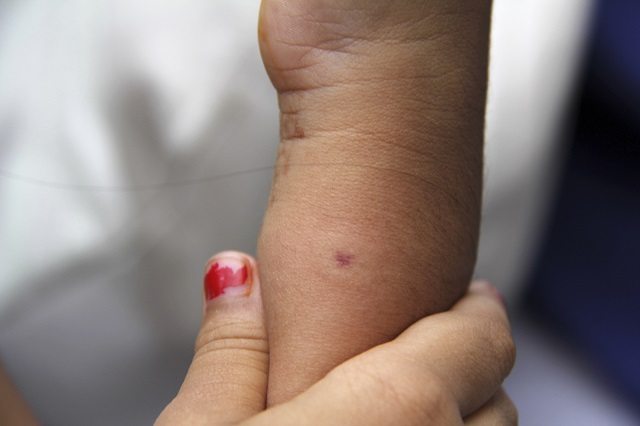With summer comes insect bites – sigh. Here’s how to treat them…
Unfortunately there are a number of summer side effects, but one that often goes forgotten is the risk of insect bites. But a simple walk in a forest can result in itchy and uncomfortable bites – ouch. They’re usually not serious, but you do need to treat them – and you need to go to the GP if your symptoms are severe.
Most insect stings result in small, local reactions, and these can be treated by:
- washing the bite with soap and water
- placing a cold cloth over the affected area to reduce swelling
- avoiding scratching the bite because this can make the bite more itchy and swollen and increase the chance of a secondary infection
Any discomfort can be treated with an age-appropriate painkiller or with a topical cream like 1% hydrocortisyl cream. Occasionally an antihistamine might be advised or prescribed, but always get advice from a GP or pharmacist, especially if the sufferer is under 18.
Seek medical advice if you are experiencing a lot of pain or itching, or if there are signs of infection, such as pus in or around the bite, swollen glands or increasing redness, swelling and pain in and around the bite.
Read: Living with allergies
If you have a severe allergic reaction to an insect bite, such as wheezing or difficulty breathing, call 999 immediately to request an ambulance.
This summer in particular, the HSE has issued a warning about tick bites, which could cause Lyme disease. Remove the tick as soon as possible to reduce your risk of developing the disease:
- Use tweezers, wear gloves or cover your fingers with tissue to avoid touching the tick.
- Grab the tick as close to the skin as you can, and gently pull straight up until all parts are removed.
- Do not twist or jerk the tick as you are removing it because this may cause the mouthparts to break off and remain in your skin once the tick has been removed.
- Wash your hands with soap and water.
- Using petroleum jelly, alcohol or a lit match to remove a tick does not work.
- After the tick has been removed, clean the tick bite with soap and water or an antiseptic (a substance that reduces the growth and development of germs), such as an iodine scrub.
- Do not scratch the bite because this will cause further swelling and increase the chance of infection.
Most tick bites will heal within three weeks. See your GP if you develop:
- a rash
- a fever (high temperature) of 38°C (100.4°F) or over
You may need antibiotics to prevent Lyme disease.
For more information on bites and stings, log on to www.hse.ie.
maternity & infant
Originally posted 2017-07-18 12:11:58.
